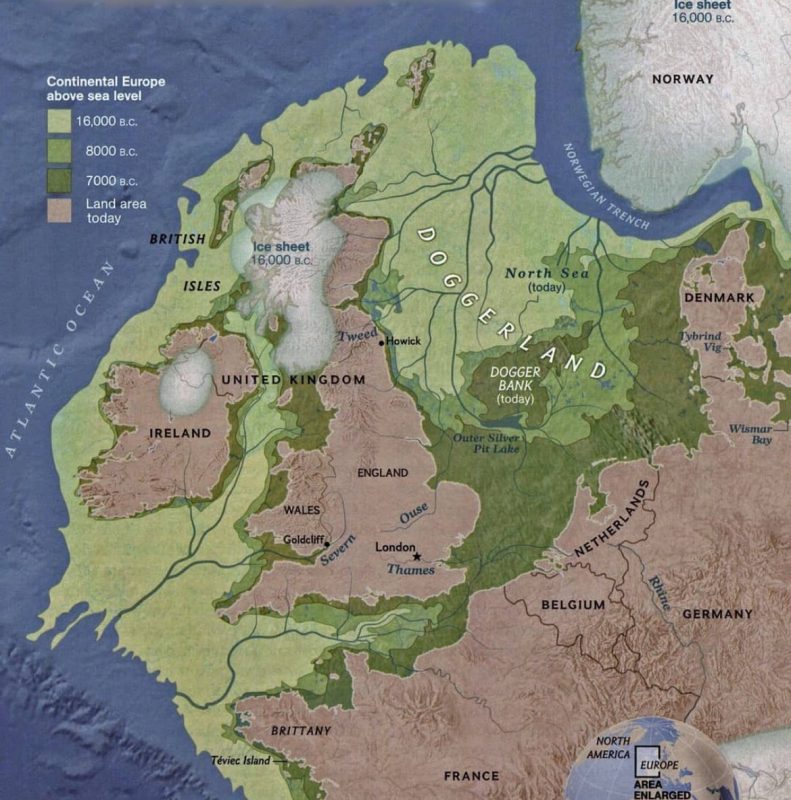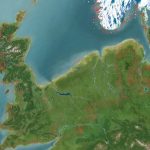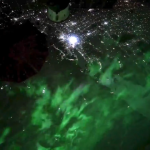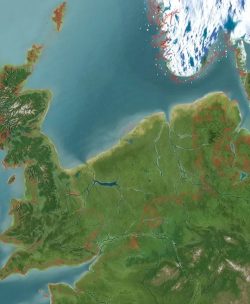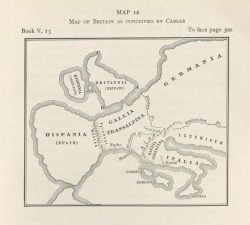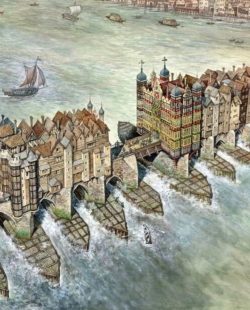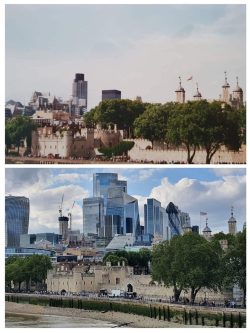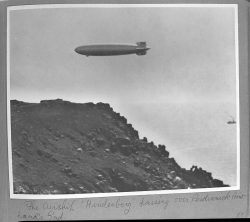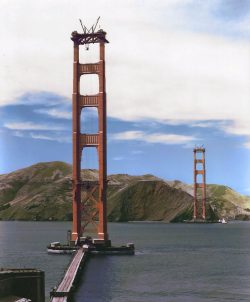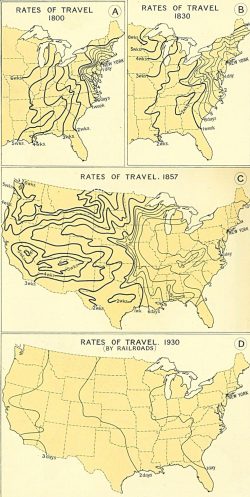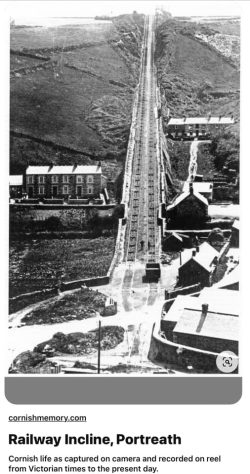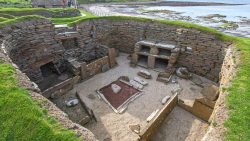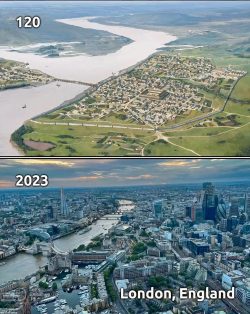Just 9,000 years ago Britain was connected to continental Europe by an area of land called Doggerland, which is now submerged beneath the southern North Sea.
Doggerland was a mix of marshes, swamps, wooded valleys and hills, and most likely inhabited by humans during the Mesolithic period (10,000 to 8,000 BCE). It was teeming with migrating wildlife and served as a seasonal hunting ground for humans.
However, as ice melted at the end of the last glacial period, sea levels rose and Doggerland eventually became submerged, cutting off the British peninsula from the European continent by around 7,000 BC.
Dogger Bank (shown on the map) briefly remained an island before submerging underwater. The area today is known among fishermen to be a productive fishing bank and is very shallow at only about 50 to 120 ft (15 – 36 m) deep.
Over the years fishermen from the North Sea have dredged up hand-made bone artifacts, textile fragments, paddles, dug-out canoes, fish traps, a 13,000-year-old human remain, a woolly mammoth skull and a skull fragment of a 40,000-year-old Neanderthal.
